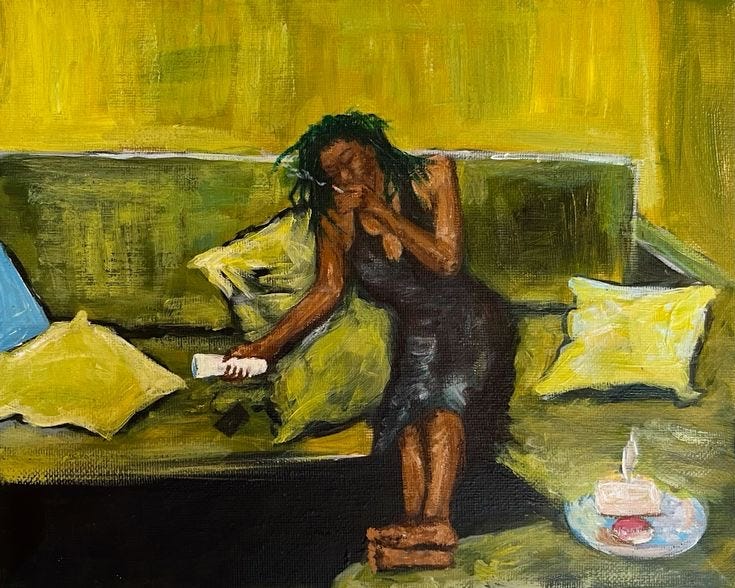Success is a Boy's Club
How do women gain political, economic or cultural influence when the gatekeepers (always men) disregard them in all ways but one?

This topic has been on my mind for over two years. It’s one that continues to affect my life in significant ways. While it often hampers my ability to thrive in the world, it has also rescued me from writer’s block—an ironic silver lining.
It’s been a long time since I last posted here. My silence was due to a one-year mandatory medical internship program, which I completed last month. During that period, I managed to share some work. But more often than not, my attempts to write barely made it past two paragraphs.
I’ve tried to keep my entries apolitical. Yet, this claim is technically untrue, as everything in life has political dimensions. What I should say is that I’ve steered clear of “identity politics”—a subject that tends to provoke strong reactions. Unfortunately for me, I am first a woman, then a human being, and life reminds me of this at every turn.

Society is teeming with systems that disadvantage women. As we move through life, from being a baby girl to an elderly woman, we witness how patriarchy shifts its form but never its grip.
To the untrained eye, the limitations are covert, though the unequal distribution of power is always glaring.
Historically, men’s physical dominance after the Agricultural Revolution excluded women from power and erased their identities, subordinating them to fathers, husbands, and even sons. With the Industrial Revolution, physical strength began to matter less in power dynamics. Yet, the patriarchy found new ways to entrench itself.
One insidious form is how many men fail to see women as anything beyond objects of sexual value. While this mindset is often denied explicitly, it manifests in stark, implicit ways.

The sexual objectification of women is hardly news. From your pre-pubescent years, men older than your father harass you in public, in full view of a passive community. Everyone, women and men alike, warns you to be wary of boys and men because, in the end, “they only want one thing.”
In my current “working woman” phase, I’ve encountered a troubling offshoot of this dynamic. Many men do not see women as equals or colleagues to collaborate with professionally. Instead, they view us first as potential sexual partners. This pervasive mindset creates a barrier to women’s progress in nearly every field, informal and formal.
It seems that whenever a platonic interaction develops any depth, men often attempt to steer it toward a romantic or sexual direction. While this observation excludes queer dynamics (e.g., poly or bisexual experiences), the reality remains blatant for heterosexual interactions.

Some might argue that the solution is to exclusively build friendships with women. But this strategy, in context, further disadvantages women. Why? Because wealth and influence remain overwhelmingly concentrated in the hands of men. I’m ignoring the argument that it is also unprogressive because the approach does not struggle for a shift in the status quo.
So, how can women gain political, economic, or cultural influence when the gatekeepers (almost always men) disregard us in every way except one?
Success is a boys’ club.
Men withhold “updates” that could propel us forward. When “important” conversations are had, a woman’s presence is mostly unwanted. They hesitate and often refuse to introduce women in their lives to influential people (usually other men) who could help, knowing that those connections would likely view them primarily as objects of desire.
There is a dearth of desire to “empower” women beyond NGO projects and other public contraptions of capitalistic feminism. In private, day-to-day exchange, power and women do not meld. We are expected to be content being the beneficiaries of the fictional good man’s goodwill. In fact, we are envied for it in all its benevolent sexism.

Sadly, I have to be abrupt because this is a vast and complex subject, one worthy of a thesis. For now, though, it’s just a short blog entry. The conversation can continue in the comments and perhaps evolve in future posts.
If I’ve failed to make the problem clear, or if you believe it does not exist or that women’s glass ceiling is acceptable, that’s a discussion we can have.
Anyway, I’m glad to be back. Until next time.
Sunday, 10 a.m.
Like. Share. Connect with Kuffy Eyo
Thank you for kindly sharing your art Bisola Michal.




